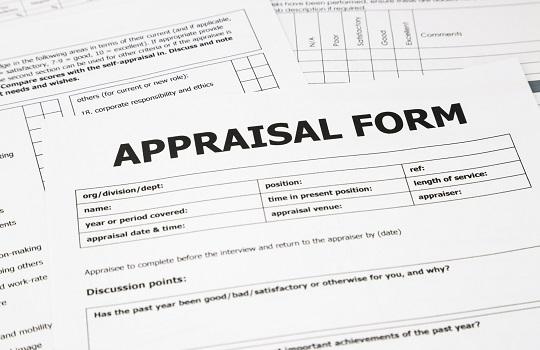The article title might, perhaps, give away all-too frequent problems in HR. Let’s try starting with a question: is (good) performance something that is managed, or something that is led?
I would strongly argue the latter – good or great performance is not something that comes from being firmly in control as much as it comes from encouraging, supporting, providing opportunities and setting behavioural examples. Where you lead, others may follow, where you manage, others will most likely simply obey or comply – and there is more to exceptional performance than compliance.
The other word in the title that would, I hope, ring alarm bells is ‘yearly’. Let’s draw a comparison with an everyday aspect of life. We all have bank accounts, and we probably all scrutinise our periodic statements – more so when we are conscious that things are a little ‘tight’. But I would hope that only a few of us never stop to take a few moments at the ATM to monitor our current balance, rather than checking the balance only once a year. Workplace performance should be no different.
Performance management (or, better yet, leading performance) is not an annual event, but a daily process, and people are more likely to achieve the intended outcomes where this fundamental difference is considered.
The activities of effective performance leadership (for example, setting clear performance and behavioural objectives, providing constructive and timely feedback, offering coaching and mentoring, addressing under-performance and ensuring direct reports have the support and opportunities they need) are not things that are best crammed into an annual half-hour discussion, especially where ‘discussion’ may not be the most accurate description. But in too many cases, performance management is operating in a fashion that can only be described as ‘upside down’ as organisations place emphasis on the review and appraisal tasks and under-invest in feedback, coaching and challenging.
There are a number of activities that must precede any effective appraisal meeting:
- Planning for performance: setting good objectives (aligned to business objectives, competency frameworks and other elements that make them meaningful) is the foundation of good performance, maximising the prospect that time and effort are invested to generate a real return
- Giving feedback: feedback must be provided, skilfully and frequently, so that individuals can evaluate their progress and avoid repeating past mistakes. Feedback should also recognise effort and achievement where these are evident
- Providing coaching: those who wish to perform more capably are more likely to do so where they are supported in their efforts, and coaching is the most effective form of developmental support that a line manager can provide
- Challenging gaps in performance: where a gap appears between an agreed objective and the actual performance (and it may do so for many reasons and not all can be laid at the feet of the employee), managers must gain acknowledgement that it exists and ensure that it is subsequently closed (offering coaching where necessary to achieve this)
The appraisal meeting (which would also benefit from being renamed, acknowledging that it is a discussion and a review, not a moment of judgement or a trial) should be the pinnacle of this activity, and the formality that confirms all the dialogue taken place since the previous meeting. It should not be the first time an employee becomes aware of shortfalls, instances where their performance or behaviour has not been judged favourably, or doubts about their ability or development. If these issues are lurking; they should already have been raised. Performance happens every day, and so should its management.
If you are currently planning the next appraisal meeting for one of your team, it is likely you are already drawing up a list of questions. There is nothing wrong with doing this, but I would suggest you add some additional questions that are addressed to yourself:
- How often have I discussed performance, offered feedback or recognition, provided coaching or new opportunities since the last appraisal meeting?
- If there are performance shortcomings that I need to address, have I already raised their existence and made it clear that they will need to be addressed?
- Have I made clear links between my expectations of performance and behaviour with the objectives of the team, the function and the organisation?
- Are the goals I have set clear, realistic and achievable, and does the employee have everything from me needed to succeed?
- How do I intend to use the appraisal meeting so that a positive outcome is more likely to be achieved, and what (if anything) do I need to commit to – or provide after the meeting – to make that happen?
- Would additional training, coaching or resources help me to lead the performance of my team more effectively?
Appraisals are about helping your team to be the best that they can possibly be, individually and collectively, and about recognising that great performance is not simply managed – it is inspired. The final question to ask yourself is who or what is your employee inspired by – and to find the way to be that source of inspiration.








